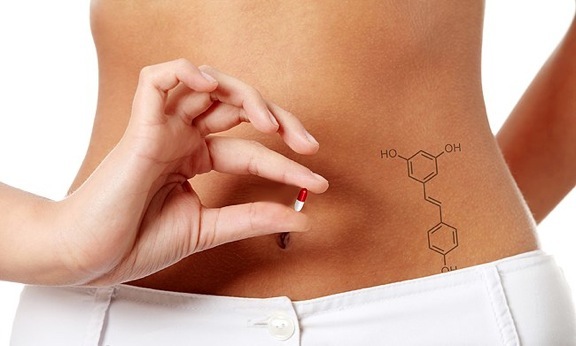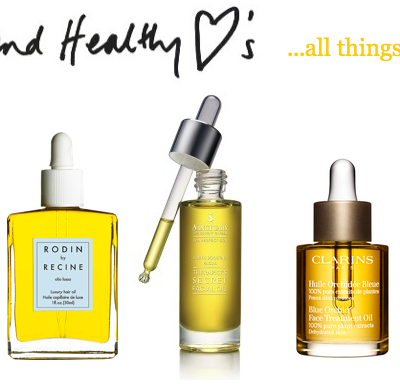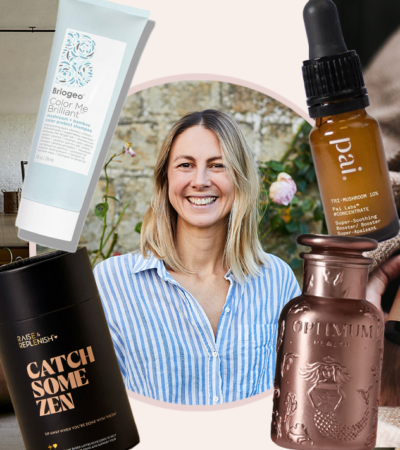If you’re going cold turkey this January, do not fear, you can still get the benefit of Resveratrol without a glass of red passing through your lips, says Lee Osborne
Resveratrol has been getting anti-aging enthusiasts across the pond into a frenzy in recent times. Readers of Hip & Healthy’s Sept/Oct issue will already be familiar with this strange sounding anti-oxidant that is a major component in red wine, present in the stems, leaves and skins of grapes. resveratrol, is renowned for its healing effects on heart and cardiovascular health, eyesight, energy, vitality, sleep and weight management.
The underlying problem in the anti-aging community up until recently, was how to get the benefit of resveratrol without drinking vast amounts of red wine, which, given the large amounts of alcohol that would be ingested, could negate any potential benefits.
The supplement:
Scientists have found a way to extract resveratrol from red wine and put the advantages of the compound into a health supplement, which is readily available in health food stores and nutri centres across the UK.
It appears that resveratrol supplements pose the same benefits on health and lifespan as calorie restriction, without the need for reducing what you eat, for instance improved insulin sensitivity, blood sugar balance and mitochondria* function.
Numerous scientific studies have investigated the supposed health benefits of resveratrol, and the findings make encouraging reading. The renowned Harvard Medical School in the United States published findings of a major study in to the effects reseveratrol had on mice. Scientists were staggered, not only to discover that resveratrol extended lives of the mice by 20%, but that actually it helped control their weight and significantly increased their energy levels. Whilst anti-ageing studies of resveratrol have not yet been performed on humans, it is proven to aid with age related degenerative diseases, thus supporting the theory of its positive effect on longevity.
If this theory were to be applied to humans, it is thought that your life expectancy could be raised by up to 30 healthy years, with some scientists believing it could possibly extend the normal life span of a human being to 125 years old.
Closer to home, Professor Patrick Schrauwen and his colleagues from Maastricht University in the Netherlands conducted a small-scale scale study of the resveratrol supplement in the latter part of 2011. The findings were intriguing. He came to the conclusion that resveratrol has similar metabolic effects to exercise and calorie restriction. His team handed a group of 11 obese men either a daily 150mg or a placebo supplement for 30 days. The same men swapped supplements 4-weeks later. Regular monitoring showed resveratrol lowered blood sugar levels and improved insulin sensitivity, as well as cutting triglycerides – fats found in the blood that can increase heart disease risk. resveratrol also decreased both sleeping and resting metabolic rate and cut blood pressure.
What does it do?
The pill has 1000 times the potency of red wine. It literally slows down the genes that control the aging process and activates your body’s natural defences against the ravages of time. It is possible that you will start to notice the effects, such as increased energy, better sleep and improved mental concentration after just one week.
How much of the stuff should we be taking? Are there minimum resveratrol doses that are recommended? Fortunately, people do not need to glug bottle upon bottle of red wine to achieve the right resveratrol dosage.
H&H asked Holistic Nutritional Therapist, Donna Milligan, who runs the Cottage Therapy Studio in Bedfordshire, her opinion: “The Italians know it, the French know it. A little red wine appears to do you good. But there is a way to sidestep the alcohol content, in the form of a potent, bio-available resveratrol supplement that gives you all the benefits without the risks of associated with excess alcohol. So if you are under stress, don’t eat a great diet, are exposed to environmental pollution or chemicals, don’t exercise enough or don’t sleep enough or you just want to try and delay the aging process then this little capsule may just be a life saver.”
Milligan advises that “dosage is very individual depending on a number of factors such as weight and why you might take the product. Average dose would be 1x 30g capsule a day as part of a prevention programme but if taking for a specific purpose such as cardiovascular problems the dosage may be higher. I would advise people to check with a health professional or nutritional therapist if they are unsure”.
The Cottage Therapy Studio: www.scio-wellness.com
The Nutricentre: www.nutricentre.com














